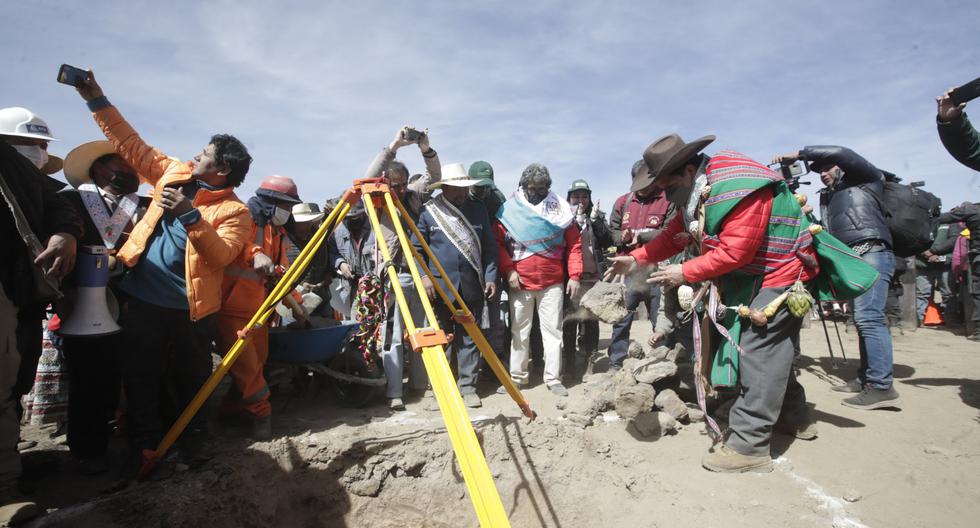The director of Analysis of Poverty, Inequality and Democratic Culture of the Ministry of Economy, Planning and Development, Rosa Cañete Alonsoconsidered that improving the living conditions of the domestic work sector constitutes a fundamental element to reduce poverty, gender inequality and guarantee equality.
“From the Ministry of Economy we have studied this branch of activity of domestic work, which is a very important sector for the economy in the country and for employment,” said Cañete Alonso, interviewed by the journalist Adalberto Grullón, and the journalist Millizen Uribe, in the program “One + One”which is transmitted by teleantillaschannel 2 starting at 7:00 in the morning.
The economist specified that domestic work is the third largest employer of women in the country as a branch of activity, generating 245,000 jobs a year, more than twice as many as free zones.
“Domestic work must be valued, it must be regulated and it must be guaranteed the same rights as other workers,” he said.
You can read: Executive granted pensions to 44 journalists and 18 cameramen; here the list
He said that domestic work is the branch of activity where the highest percentage of employed women in the country is in a situation of monetary poverty. “20% of domestic workers are in a situation of monetary poverty,” reported Cañete.
She highlighted that almost half of the domestic workers in the country are in the Supérate program, which means that they are in a situation of poverty, so improving the living conditions of this sector is essential to reduce gender inequality and to guarantee equality.
She indicated that currently domestic workers earn an average of RD$8,415 per month, 57% less than the average labor income of employed people.
Cañete Alonso argued that domestic work has unfortunately been highly undervalued in the country and is deregulated, despite its importance in generating jobs and that, in addition, it allows a large part of the rest of the rest of the workforce to go out to work. , above all, women due to being pigeonholed into care roles.
“It is a very important that the Ministry of Labor It is pushing to regulate and guarantee the equalization of the rights of these workers to the rest of the workers”, emphasized Cañete Alonso.
He argued that the document “Domestic Work in the Dominican Republic” prepared by Rosa Cañete Alonso and Ángel Serafín Cuello P. of the Ministry of Economy shows that it is one of the sectors with the worst working conditions, for example, the one that earns the least per hour of all branches of activity, RD$57 per hour.
“Really the conditions employment in this sector are negligible,” said Cañete, noting that according to the ILO (International Labor Organization) “we are one of the most backward countries in all of Latin America in guaranteeing their rights.”
He indicated that the country is the only one in Latin America that does not contemplate a maternity leave for workers in the domestic sector with salary enjoyment as in other branches of economic activity. He indicated that there is also no limit on the working hours of hours per day as other sectors have, such as agriculture.
“It’s simply about equalizing rights,” said the director of Analysis of Poverty, Inequality and Democratic Culture of the Ministry of Economy, pointing out that the country is one of the few in the region where it has not yet done so. According to the ILO, only the Dominican Republic and Honduras do not a minimum wage has been established. He expressed that in the Dominican Republic minimum wages have already been established for many sectors such as agricultural day laborers, tourism and construction and that domestic work is a job that must also have labor rights.
He recalled that the countries from the region such as Honduras, Costa Rica, MexicoGuatemala, Ecuador, Chile, Argentina have regulated the rights of this sector without having had a negative impact on the employment generated or on contracting households.
“What the Ministry of Labor is promoting is very important: minimum wage, regulation and social security coverage for domestic workers,” she emphasized.
Advances: Communities of Care
Cañete Alonso announced that within the results in the implementation of the pilot strategy Comunidades de Care began the training of caregivers, through the National Institute of Professional Technical Training (INFOTEP) in Santo Domingo Este, one of the prioritized municipalities for this initiative.
The economist pointed out that the training of more than 200 people to be caregivers has begun.
The Intersectoral Care Table was also formed with the articulation of 10 institutions that work in a coordinated manner.
You could read: Coordinate behavioral therapy project for prisoners for gender-based violence
SIUBEN has begun to survey the situation of households and their needs related to care in order to assess which families are priorities for the provision of care services.
He also said that this Wednesday, June 22, the process of designing the Local Plan for Care in Azua de Compostela.
He indicated that since Supérate program the process has begun for the creation of cooperatives, in which certified and trained people in care will be organized to begin providing home services to the most vulnerable families.

















